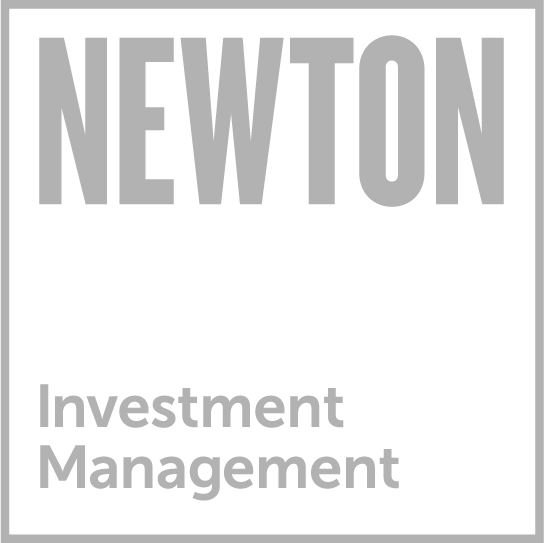December 2023
The Walter Scott Investment Team shares their insights on global equity markets going into 2024.
Highlights:
- We believe a key issue for US economic vigor will be whether or not consumption eventually wilts in the face of lagged effects of higher inflation and elevated interest rates.
- Expectations of a monetary pivot have been rising. Inflation continues to ease and may recede further as world economic growth slows.
- We believe many existing growth trends can endure despite near-term headwinds. Enterprise and innovation never stop, and opportunities will likely arise for the patient investor.
Equity markets may face a few hurdles as we enter 2024, given lingering concerns about economic prospects for the year, the direction of monetary policy, and geopolitical ructions. The picture in the US has been relatively rosy, with gloomy forecasts of imminent recession confounded by gross domestic product (GDP) figures which have highlighted the resilience of the consumer. The jobs market remains tight and wages have been rising, but consumers are dipping into their savings, judging by the significant decline in the savings rate. We believe that a key issue for US economic vigor will be whether or not consumption eventually wilts in the face of lagged effects of higher inflation and elevated interest rates.
Europe continues to flirt with a recession, with inflation and higher interest rates taking their toll on business investment and consumer spending. As with the US Federal Reserve, the European Central Bank has not yet declared victory over inflation, although prospects of further rate hikes are dimming.
In Japan, the nascent economic recovery is paradoxically being challenged by the inflation it has long sought, with real wage growth not matching rising prices. The external environment has been a source of caution too, with a number of Japanese manufacturing companies highlighting the sluggish environment in China. The problems of the debt-laden Chinese property sector continue to occupy the news headlines, although there have been signs of a more concerted economic recovery. Recent and tentative moves to improve relations between China and the West point to a recognition that despite the de-risking, re-shoring narrative, there remain deep interconnections that are hard to break, while for global companies there remain opportunities to benefit from the some of the developing trends that are reshaping the country.
Given this mixed global picture, expectations of a monetary pivot have been rising. Inflation continues to ease and may recede further as world economic growth slows. Although there is little possibility of a return to cost-less money (nor should such a return be welcomed), we believe the prospect of interest rate cuts later in 2024 would likely bolster the “animal spirits” of equity markets.
But we have witnessed a reset. Gone are the days of ultra-cheap money and fiscal largesse that have broadly characterized central bank and government policy for the past fifteen years, wheeled out at times of economic crises and calamities. The world will have to get used to a higher cost of capital for governments and corporates alike. The “There Is No Alternative” argument has lost its luster, given the ratcheting up of bond yields. Sustained high levels of interest rates are providing a test for heightened equity market valuations in some sectors, as well as for businesses that have binged on debt. The demise of Silicon Valley Bank and the forced marriage between enfeebled Credit Suisse and UBS earlier this year highlight the effect of an interest rate reset on weak, highly levered business models.
Whatever the prevailing macro currents, our optimistic view of equities derives from our long-term, bottom-up perspective. We believe many existing growth trends can endure despite near-term headwinds. Enterprise and innovation never stop. Not just in the fields of technology and healthcare but across a range of sectors, opportunities will arise for the patient investor, whether they be in enablers of artificial intelligence (AI), or consolidators in the convenience store market. But not all companies are equal. Against a backdrop of economic uncertainty and the reset in the cost of capital, market-leadership, the ability to adapt and innovate, strong balance sheets, good cash generation, and excellent management will be of paramount importance in 2024 and in the years ahead.
All investments involve risk, including the possible loss of principal. Certain investments involve greater or unique risks that should be considered along with the objectives, fees, and expenses before investing.
BNY Mellon Investment Management is one of the world’s leading investment management organizations, encompassing BNY Mellon’s affiliated investment management firms and global distribution companies. BNY Mellon is the corporate brand of The Bank of New York Mellon Corporation and may also be used as a generic term to reference the corporation as a whole or its various subsidiaries generally.
This material has been provided for informational purposes only and should not be construed as investment advice or a recommendation of any particular investment product, strategy, investment manager or account arrangement, and should not serve as a primary basis for investment decisions.
Animal spirits is an economic term that refers to the emotions and psychological factors that affect financial decision-making and economic growth.
Artificial intelligence (AI) is a branch of computer science dealing with the simulation of intelligent behavior in computers.
Gross domestic product (GDP) is the total monetary or market value of all the finished goods and services produced within a country’s borders in a specific time period.
There Is No Alternative (TINA) narrative is often used by investors to justify a lackluster performance by stocks on the grounds that other asset classes offer even worse returns.
Bonds are subject generally to interest-rate, credit, liquidity, call and market risks, to varying degrees. Generally, all other factors being equal, bond prices are inversely related to interest-rate changes and rate increases can cause price declines.
Prospective investors should consult a legal, tax or financial professional in order to determine whether any investment product, strategy or service is appropriate for their particular circumstances. Views expressed are those of the author stated and do not reflect views of other managers or the firm overall. Views are current as of the date of this publication and subject to change.
The information is based on current market conditions, which will fluctuate and may be superseded by subsequent market events or for other reasons. References to specific securities, asset classes and financial markets are for illustrative purposes only and are not intended to be and should not be interpreted as recommendations. Information contained herein has been obtained from sources believed to be reliable, but not guaranteed. No part of this material may be reproduced in any form, or referred to in any other publication, without express written permission.
Walter Scott & Partners Limited (“Walter Scott”) is an investment management firm authorized and regulated in the United Kingdom by the Financial Conduct Authority in the conduct of investment business. Walter Scott is also registered with the U.S. Securities and Exchange Commission (SEC) as an investment adviser. Walter Scott is a subsidiary of The Bank of New York Mellon Corporation.
Not FDIC-Insured | No Bank Guarantee | May Lose Value
© 2023 BNY Mellon Securities Corporation, distributor, 240 Greenwich Street, 9th Floor, New York, NY 10286
MARK-464476-2023-12-04






